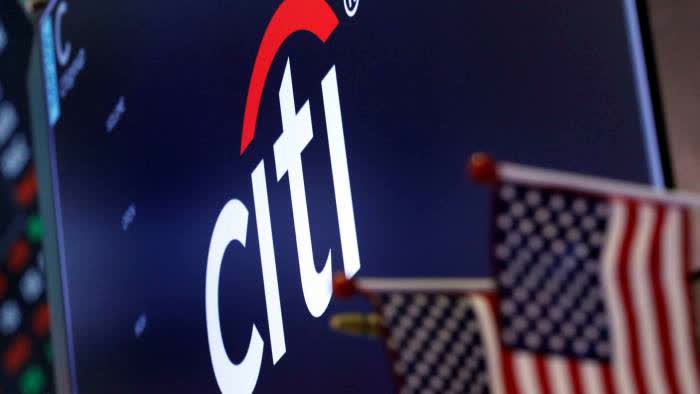Citigroup And A Biden Presidency: Risks Of Tougher Regulations
Reregulation of the banks is back on the agenda.
A divided government likely means that radical changes are not on the cards.
Nonetheless, most regulatory changes do not require legislative approval.
The key is nomination of key roles in the Federal Reserve.
Citi has to get ahead of the game and restructure.
One of the clouds hovering over Citigroup's (C) share price is the specter of tougher financial regulations. The likely outcome of a divided government (and associated "gridlock") invariably means that no dramatic upheaval of the regulatory rules is on the cards. Having said that, most of the regulatory changes that can REALLY hurt the large banks, do not really require a legislative change.
As such, analysts who suggest buying the dip on a Republican-controlled senate are possibly being a tad too optimistic or somewhat premature.
The good news, though, is that any potential changes are at the very least 2 years away (most likely 3 to 5 years). The extent of changes is also highly dependent on the identity of individuals who are nominated to key roles that are tasked with regulatory oversight.
(Source)
In this article, I am predominantly focusing on Citigroup (C) but most of the content is also applicable to the other large banks including Bank of America (BAC), JP Morgan (JPM), Goldman Sachs (GS), Wells Fargo (WFC) and Morgan Stanley (MS)
The key risk is increased capital levels
Regulatory changes affecting the large U.S. banks can manifest in many forms, including:
- Additional measures targeting Consumer protection
- Further tightening the scope and implementation guidelines of the Volcker rules
- Unwinding key deregulatory initiatives implemented in recent years (such as leverage ratios exemptions)
- Moving away from the "rule of law" approach that is providing large banks with more transparency and certainty of regulation
- Increasing the effective capital levels banks are required to hold
From an investor's perspective, most of the above (specifically 1 to 4 above), would certainly be a nuisance yet manageable and should not have an outsized impact on the share prices of the large U.S. banks. I would characterize it as a familiar return to the Obama regime's style of regulatory supervision.
Where serious pain can be inflicted, however, is the prospect of materially higher capital levels.
Higher capital levels generally mean lower share prices
Currently, Citi target a common equity tier 1 ratio ("CET1") of 11.5 percent that includes a "management buffer" above its prescribed minimum CET1 ratio of 10 percent. The management buffer is there to cushion the impact of any unexpected events such as deep recessions.
If capital adequacy rules evolve to require a materially higher amount of capital (say 13 or 14 percent), all else being equal, for Citi this would translate to lower reported ROE and thus a lower share price.
Capital increases do not (necessarily) require a legislative change. The Fed can simply make the CCAR process stricter and tougher to pass and/or make other changes, for example, require pre-funding of future dividends. This is very low-hanging fruits, from ease of execution perspective, if regulators choose to go down that path.
Key regulatory posts and timing
Regulatory oversight over large banks is a complex subject-matter area, to say the least. As such, legislators typically leave it to the experts in the Fed to run with it independently.
There are two key roles that would drive the agenda:
1) The Fed chair role that is up for renomination in February 2022; and
2) The Vice-Chair for Supervision currently held by Randy Quarles (a Trump nominee) which is coming up for renewal in October 2021.
Importantly, both these roles require Senate confirmation and thus could not feasibly seat someone who is too left-field.
One likely candidate that can fill these roles is Lael Brainard who is currently on the Board of Governors of the Federal Reserve. She has dissented on most of the recent changes to capital rules believing these are too lenient on large banks. Her views are very much aligned to the prior regime led by the former Fed Governor Daniel Tarullo. Ms. Brainard is also reportedly a strong contender for the Treasury Secretary role, so if she misses out, one would expect her to land one of the above roles as a consolation prize.

Given the above roles only become available end of 2021 and the beginning of 2022. The implementation of any significant changes would probably only occur in 2023 or 2024. Changes of this nature take a long time as they require refreshed analysis, putting out of draft rules, consultation periods, refinements and issuance of final rules.
Citi business model and the CCAR stress tests
As noted above, the key risk is materially higher capital requirements inhibiting Citi's ability to return capital to shareholders. The most likely path of effecting higher capital requirement is through the CCAR stress tests.
Citi's business model is well-suited to the current stress-tests regime. Under the CCAR process, Citi's corporate and investment bank ("ICG") is projected to generate relatively modest credit losses. This completely makes sense as it is a low credit-risk business that is primarily exposed to investment-grade corporates clients and large financial institutions credits but it is also a business that has high leverage utilization. On the flip side, the Global Consumer Bank ("GCB") is projected to make outsized loan losses under CCAR given its large exposure to unsecured consumer credit (i.e. Cards business) but is very economical in the consumption of leverage capacity. So the two businesses are complementary and effectively "cross-subsidize" each other given the inverse correlations in respect of capital and leverage.
Importantly though, Citi's binding constraint is on the capital side and not on leverage capacity. So the most effective lever Citi can pull in managing the CCAR outcomes is by materially reducing the projected Consumer credit losses.
The window of opportunity
As noted above, any changes to the regulatory framework will only likely to take place in a few years' time. Citi has a window of opportunity now to make strategic capital allocation decisions that are extremely shareholders' friendly. Clearly, the most effective way of rewarding shareholders when the stock trades at 0.6x tangible book is to buy back shares on a wholesale basis.
As noted in a prior article, there are compelling reasons for Citi to sell its Asian and Mexican consumer banks. If executed correctly, Citi should be able to buy back as much as 50 percent of its share count in the next three years.
It will also make Citi a much more capital-efficient bank and largely neutralize the impact of potential upcoming changes to the regulatory framework.
Final thoughts
Financial regulation is probably not one of the top priorities of the Biden administration. Having said that, it is low-hanging fruit that does not require legislative changes either and can be easily implemented by placing carefully selected individuals in key roles.
The most significant potential adverse impact on Citi is the specter of increased capital requirements which is a huge potential headwind for the stock. It can materially reduce the amount of capital Citi can return to shareholders in the long-term and dampen its reported return on equity metrics.
The good news is that regulatory changes take a long time to implement and banks will not feel the full brunt of these until 2023 or 2024 at the earliest.
The fact that the large U.S. banks have managed well the fallout from the recent pandemic is a clear positive which hopefully should be acknowledged by regulators (and the Fed's loan losses models!).
The real opportunity for Citi though is to get ahead of the game. In any conceivable regulatory paradigm, being simpler and smaller makes absolute sense.
Citi should play to its strengths (i.e. ICG and the U.S. cards business), sell the Global Consumer Bank and buy back shares now like there is no tomorrow!
I essentially write for Seeking Alpha to stress-test my investment thesis. I would be very grateful if you participate in the "comments" discussion and provide your views (whether contrarian or otherwise). If you enjoyed this article and would like to be notified of additional articles on banks, special situations and conviction ideas, scroll up and click "Follow".
Disclosure: I am/we are long C, MS, JPM. I wrote this article myself, and it expresses my own opinions. I am not receiving compensation for it (other than from Seeking Alpha). I have no business relationship with any company whose stock is mentioned in this article.

